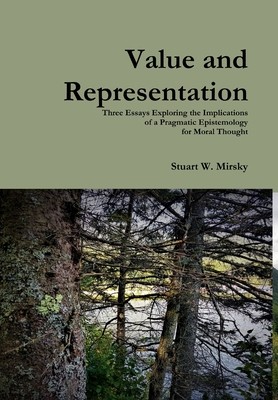
- We will send in 10–14 business days.
- Author: Stuart W Mirsky
- Publisher: Lulu.com
- ISBN-10: 0359336817
- ISBN-13: 9780359336814
- Format: 15.2 x 22.9 x 1.3 cm, hardcover
- Language: English
- SAVE -10% with code: EXTRA
Reviews
Description
Addressing the epistemological question of how knowledge of a world is enabled in creatures like ourselves, Stuart W. Mirsky argues that moral claims can only be understood within the broader scope of valuational activities in general which form one of two essential pillars to make knowledge of a world possible. Without the capacity to value, he suggests, there can be neither referring nor asserting, both essential to our ability to conceive a world and live within it. Thus valuing can be seen to be a critical element in the formation of human knowledge, placing our ethical judgments on firmer epistemic footing than contemporary philosophy has heretofore allowed.
EXTRA 10 % discount with code: EXTRA
The promotion ends in 20d.20:57:29
The discount code is valid when purchasing from 10 €. Discounts do not stack.
- Author: Stuart W Mirsky
- Publisher: Lulu.com
- ISBN-10: 0359336817
- ISBN-13: 9780359336814
- Format: 15.2 x 22.9 x 1.3 cm, hardcover
- Language: English English
Addressing the epistemological question of how knowledge of a world is enabled in creatures like ourselves, Stuart W. Mirsky argues that moral claims can only be understood within the broader scope of valuational activities in general which form one of two essential pillars to make knowledge of a world possible. Without the capacity to value, he suggests, there can be neither referring nor asserting, both essential to our ability to conceive a world and live within it. Thus valuing can be seen to be a critical element in the formation of human knowledge, placing our ethical judgments on firmer epistemic footing than contemporary philosophy has heretofore allowed.


Reviews